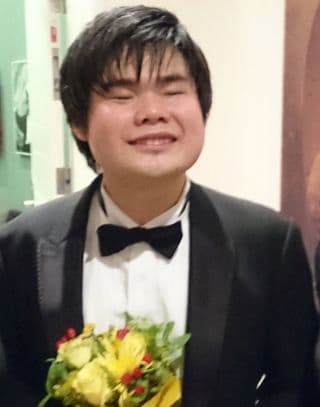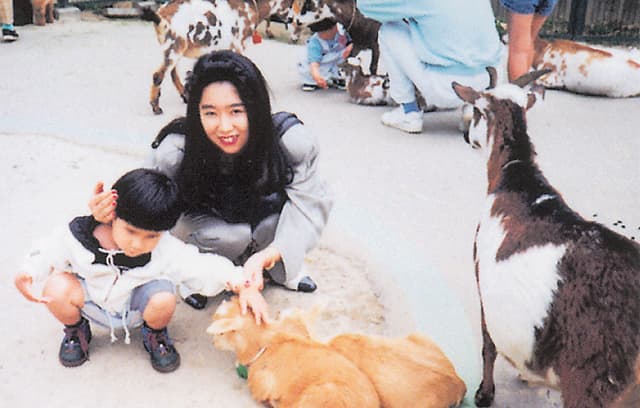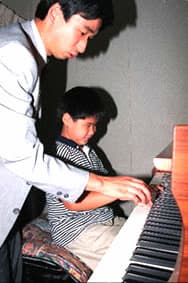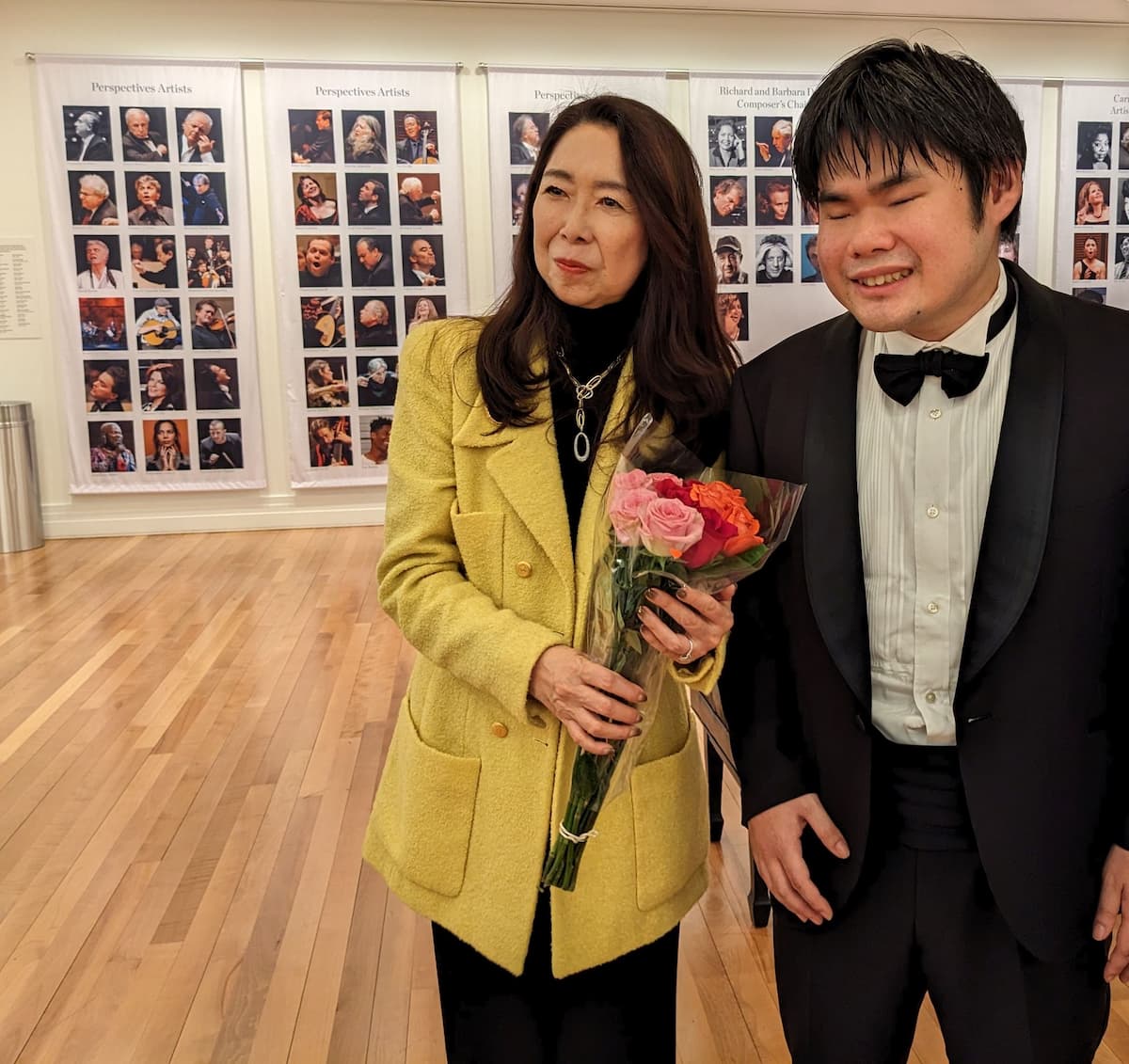The 2009 Van Cliburn International Piano Competition became a huge catalyst for Chinese pride when Haochen Zhang, one of the youngest winners in the history of the competition, was declared a Gold Medallist. For much of the enthusiastic crowd, it was a mere footnote that Haochen actually shared that Gold Medal with Nobuyuki Tsujii, a remarkable Japanese pianist blind from birth.
Nobuyuki Tsujii at the 2009 Van Cliburn plays Chopin: Etudes Op. 10
An Exceptional Talent

Nobuyuki Tsujii in 2019
Nobu Tsujii was born on 13 September 1988 in Tokyo to the physician Takashi Tsujii and his wife Itsuko, a former broadcast announcer. He was born with a developmental disorder of the eye, referred to as microphthalmia, in which both eyes are abnormally small and have anatomic malformations. As if nature had wanted to compensate for Nobu’s blindness, he was also born with perfect pitch that allowed him to instantly repeat notes and chords.
His extraordinary talent was discovered early by his mother. She relates that the young boy started to pick out tunes on a toy piano when he was only 2 years of age. He soon started to accompany his mother’s singing using both hands and playing chords, and his mother recalls, “he started to play the songs I was singing after a couple of times, and he enjoyed it so much that we decided to get him a real piano.” As for Nobu, he can’t remember the first time he heard the sound of the piano, and he “simply started playing the piano spontaneously.”
Nobuyuki Tsujii Plays Ravel’s “Scarbo”
First Instruction

Nobuyuki Tsujii and his mother
Tsujii began formal piano studies with Masahiro Kawakami at the age of 4, and his mother initially helped him to read the music when they went to lessons together. Actually, Kawakami started recording music for Nobu when he was only 7, and for Nobu, music was always fun. “I just played the songs I wanted to instead of going to the usual piano book. Even when I went to piano school, the teacher let me have fun and play whatever I wanted. I think that’s why the piano is still so fun for me… I think first and foremost that music should be fun.
Tsujii won first prize at the “All Japan Music of Blind Students” by the Tokyo Helen Keller Association, in 1995, and three years later gave his debut with The Century Orchestra Osaka. And he quickly gave his first piano recital in the small hall of Tokyo’s Suntory Hall at age 12. Learning new musical pieces is certainly not made easy by being blind. Tsujii does use Braille music scores, but since there is low demand, the variety of scores is limited for a professional performer.
Nobuyuki Tsujii Performs Liszt’s La Campanella
The Tsujii Way

Nobuyuki Tsujii’s first lessons
With Braille music scores not readily available, Nobu devised his own method. As he explained, “I ask my assistants to record the music to cassette tape by hand. One tape with right hand, and another with left hand. When they record it, they split the music into small sections such as several bars, and also record with verbal comments about markings and instructions by the composer. I ask them to avoid recording with their own interpretation, to give me as precise a view of the music as possible.”
Once he has memorized these tapes, he starts to combine both hands and infuses the music with his own interpretation. By 2010, Tsujii had committed well over 100 classical works to memory. It takes him roughly one to three days to learn a very short piece, but for something longer, like a large-scale sonata or concerto, “it normally takes one month, if I could concentrate on it.”
Nobuyuki Tsujii Performs Chopin’s Piano Concerto No. 2 in F minor, Op. 21 “Allegro vivace”
On Performing

Nobuyuki Tsujii at Carnegie Hall Jan 19 2023
Tsujii is fully concentrated and absorbed in the music before he gets on stage. As he told in an interview, “I’m always nervous before I start playing, but there’s that adrenaline rush and excitement that comes from playing in front of an audience that makes it different from when I’m just practicing…Before the performance, the feeling of I want to play fast and I want to sit in front of the piano quickly becomes stronger, which seems to be my tension.”
However, once he plays a single note Nobu returns to “his usual self and concentrates on the performance.” The passion and excitement he brings to every concert and his flawless performances have been recognized around the world, and he has been featured in a number of documentaries. In addition, Tsujii is also a composer, performing his own composition “Street Corner of Vienna” at the age of 12. And it somehow seems right to have his mother have the final word. “You must challenge yourself,” says Itsuko, “if you truly want to achieve something, you can achieve it despite having disabilities, I believe that from the bottom of my heart.”
For more of the best in classical music, sign up for our E-Newsletter
